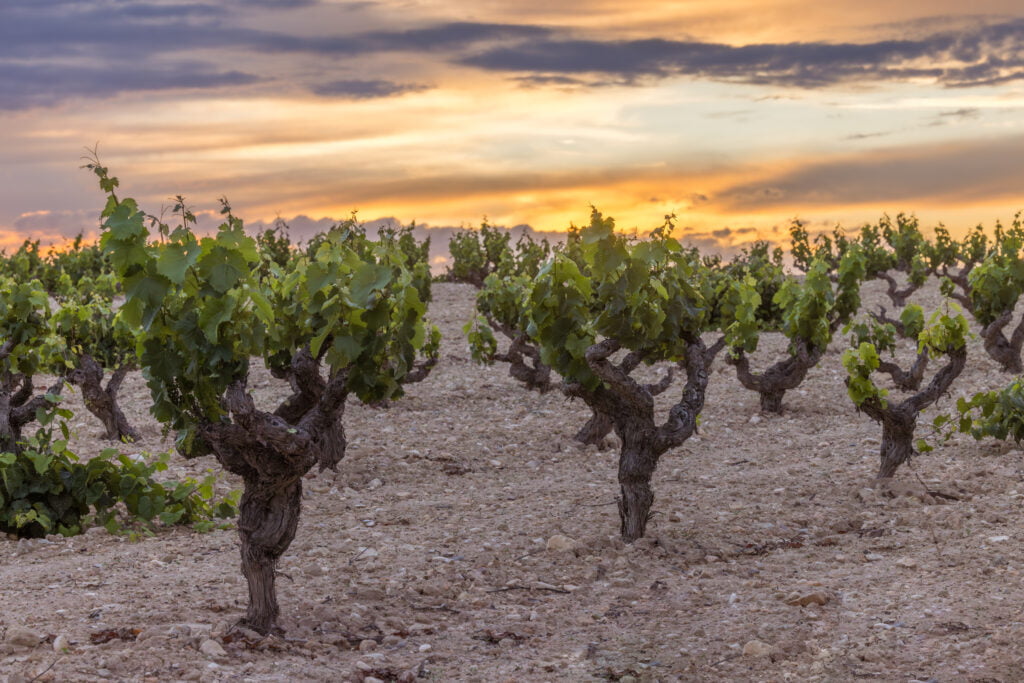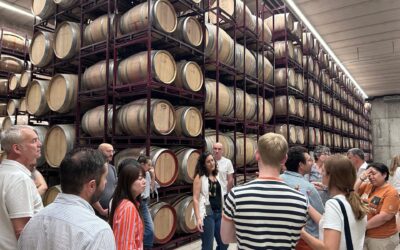The Spanish region of Jumilla is famed for its arid climate and rocky soils. Now, it’s wonderfully gastronomic wines are set to take the on-trade by storm, reports Sarah Neish.
Stroll through any working vineyard and in most instances you might notice the soft give of soil or cover crops beneath your feet. If a bird soaring overhead happens to relinquish the odd twig or berry, you might hear a gently cushioned thud amid the buzzing of bees and scurrying of insects. Not so in Jumilla, in Spain’s southeastern corner. Here, instead of soft soils underfoot, there’s the clatter of rocks knocking against each other – fist-sized, pale as bones and baking in the scorching sun. It seems incongruous that life could survive in this lunar-like landscape, and yet it’s home to some of the country’s oldest and most magical vines.

For all the hype about ‘cool-climate’ wines, Jumilla stands out for producing the exact opposite. Ferocious sun, desert-like conditions and limestone plots that look more like pebble beaches than vineyards miraculously combine to produce wines of exceptional personality and freshness. “A winemaker from Madrid came to visit us and said: ‘What are they growing here? Grapes or stones?’,” says Esther González de Paz, communications and marketing director for DOP Jumilla, with a twinkle in her eye. Located inland in Murcia, around an hour ’s drive from Alicante, the historic wine-producing region of Jumilla is distinctive for its arid climate, rocky soils and scant rainfall – only 300mm annually – conditions which might seem hostile, but which have contributed to its quiet success for centuries. The fact that these inhospitable lands are almost devoid of water means that Jumilla’s vineyards are practically disease-free, and managed to survive the ravages of phylloxera as it swept across Europe with a wave of the reaper ’s hand in the late 19th century. More than 70% of France’s vineyards were left in ruins following the blight, which saw Jumilla lithely jumping in to supply countries such as Portugal, which were crying out for wine.




